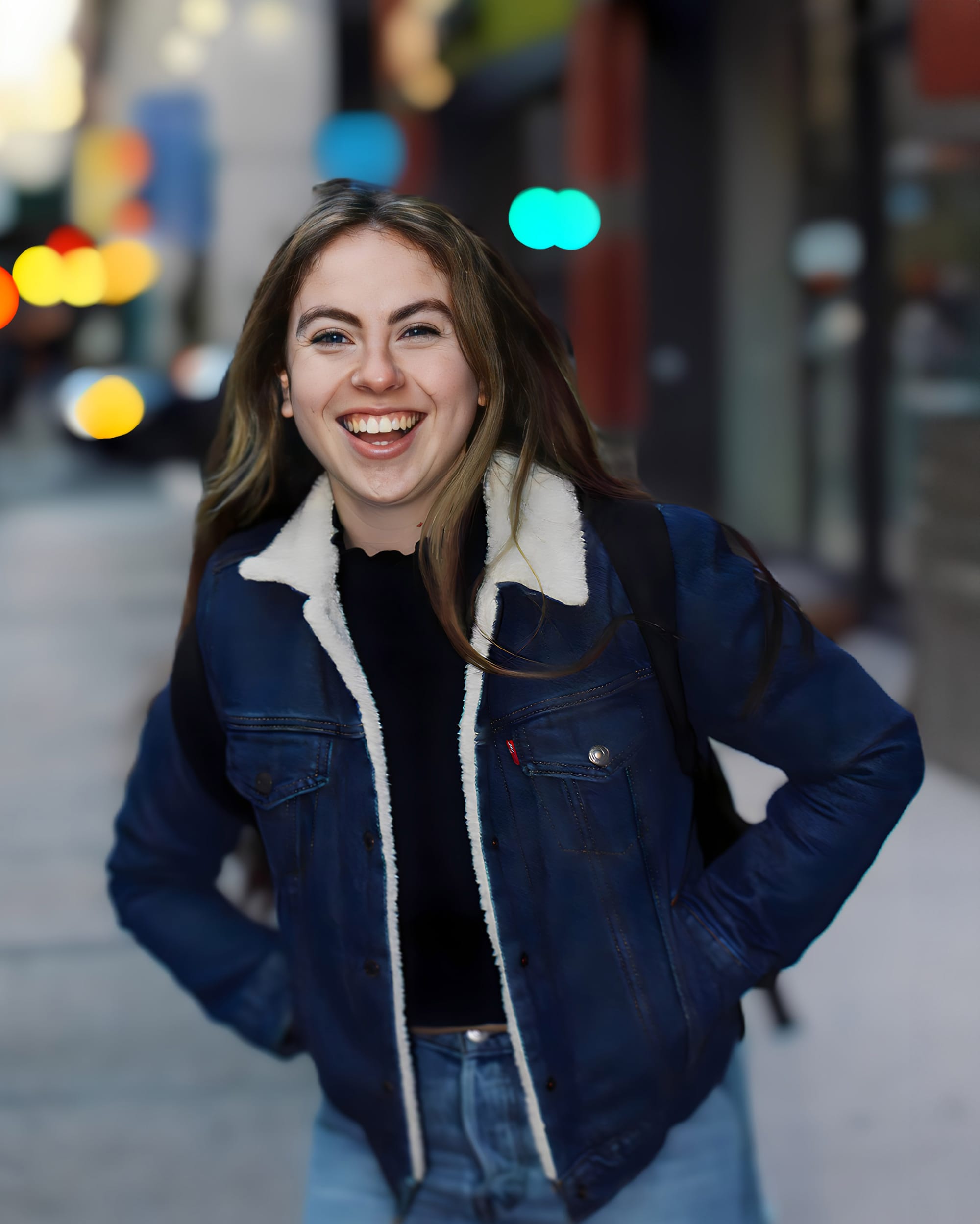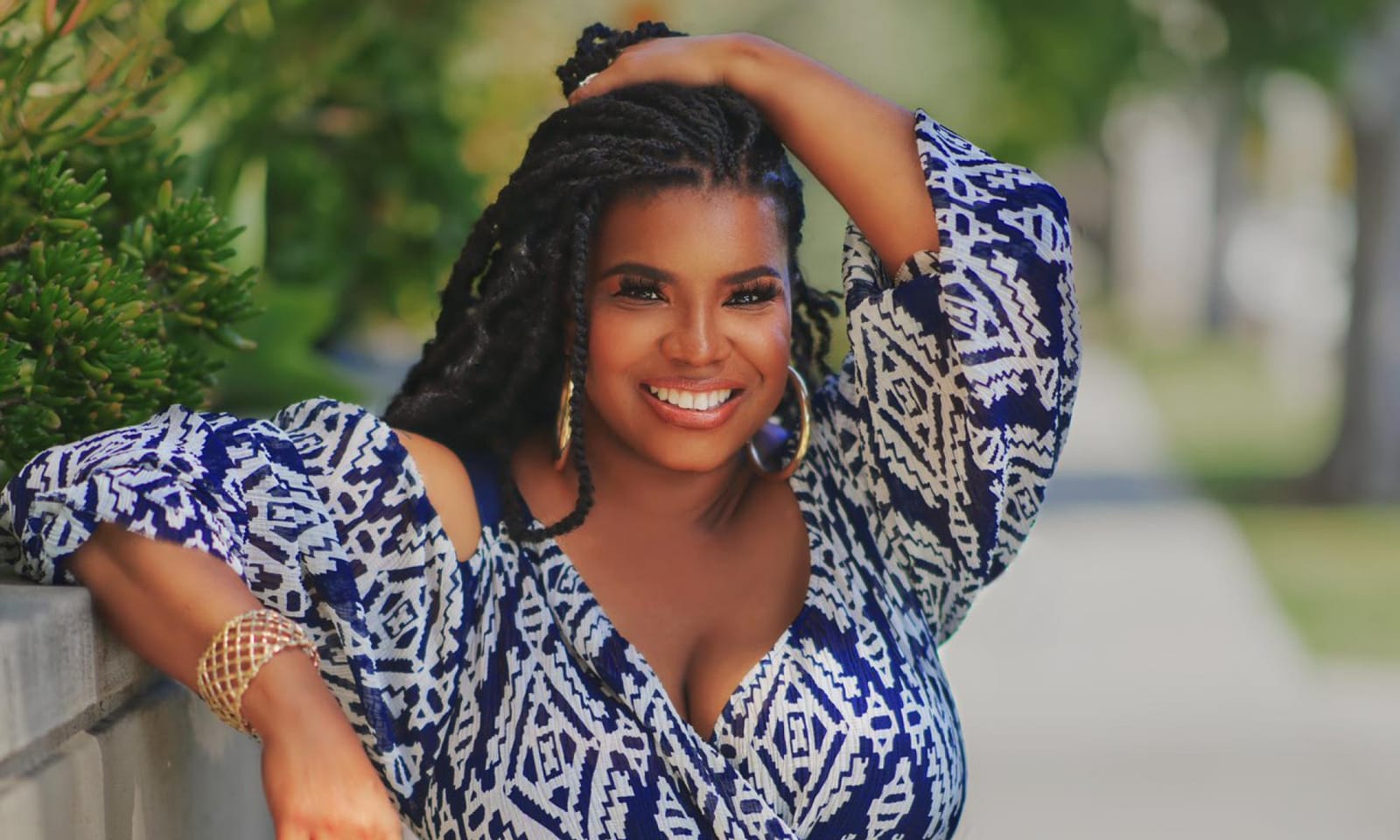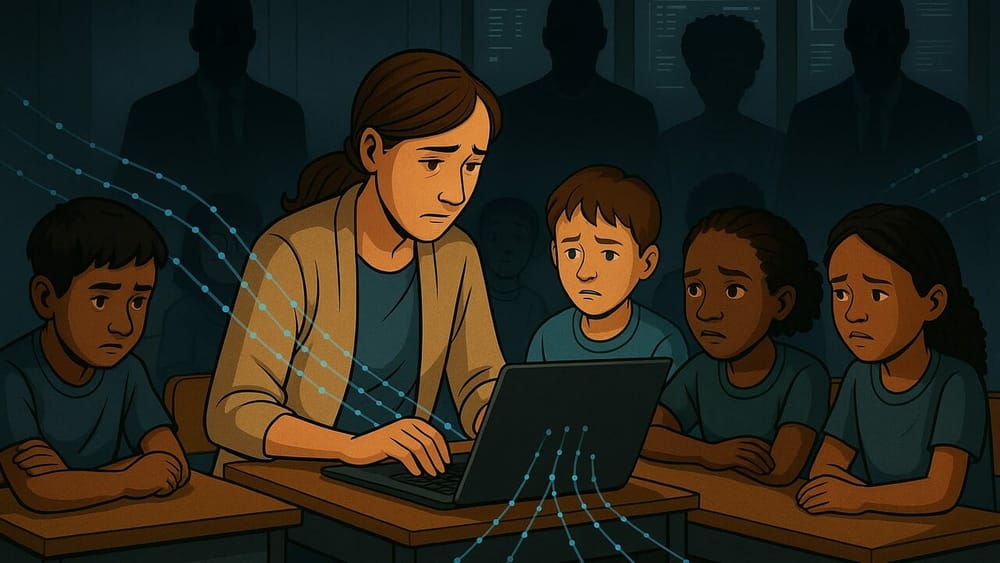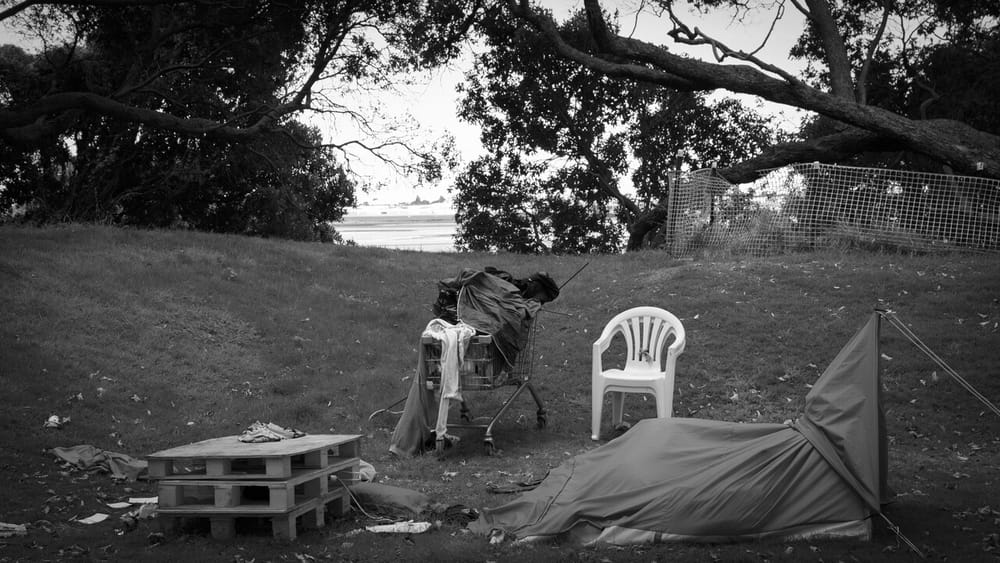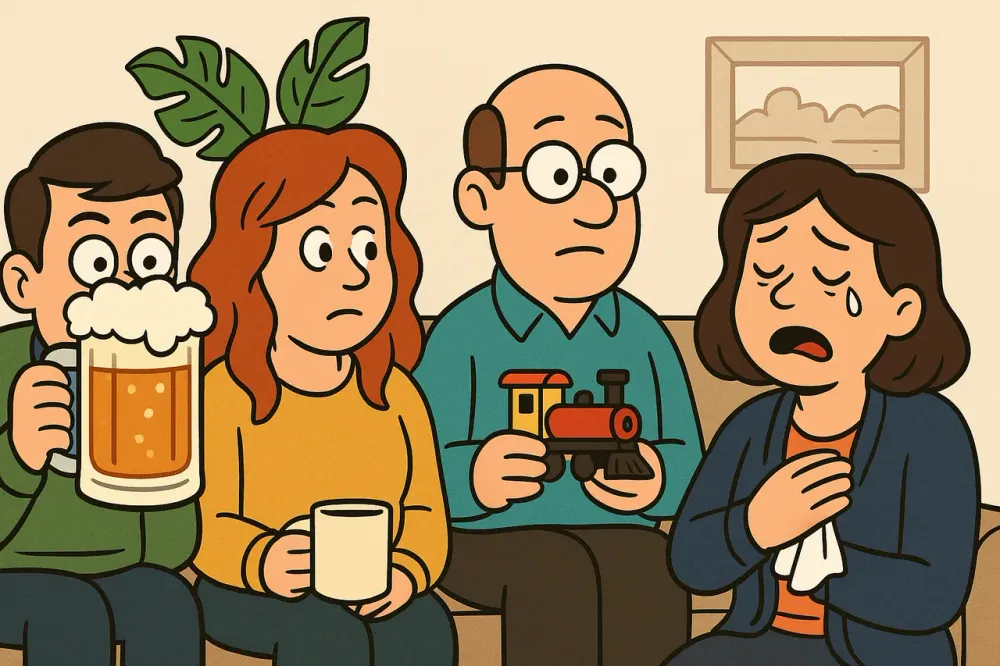In the face of the many seemingly unsolvable problems of the world, it takes courage, faith and determination to take on the role of a superhero. Colours of a Changemaker is a series of interviews with Black, Indigenous and People of Colour from around the world who are using their vocation to create social and environmental change. As Gandhi once said, we must be the change we want to see in the world, and these changemakers are doing just that through their art, music, written works, social platforms and much more.
Note: This interview has been edited and truncated for clarity.
April Reign is a media strategist and a passionate advocate for the inclusion of marginalised communities across society. She is the creator of the #OscarsSoWhite hashtag which snowballed into a mass reckoning on social media regarding representation and who it is that gets to decide what is worthy of nomination. It was appropriately dubbed “the hashtag that changed the Oscars” by The New York Times, and since Reign posted it six years ago, The Academy of Motion Picture Arts & Sciences has doubled the number of people of colour and women in its ranks. However, Reign still feels that there is a long road ahead. Feigning inclusion for the press and really enacting are two different things, she reminds.
In this interview, Reign shares her views on the importance of inclusivity and representation in the media sphere and her faith in the younger generation to be more open-minded and forward-thinking. The more the media reflect the world in which we actually live, she argues, the more honest and lucrative a business it can be.
You have used social media, particularly Twitter, to start so many important conversations and effect change. I’m interested in your take on where that line is drawn in terms of social media action and what people might perceive as real-world action. Do you think there’s too much dependence on using social media to create change now or do you feel that’s a misconception and that activism is just changing to be with the modern times?
I think that activists, advocates, whomever, should use all of the resources that they have and that includes social media. So, I think about the folks who have to start GoFundMe to pay for the funeral of someone who died of COVID or teachers using a platform like DonorsChoose so that they can get resources—pens and crayons and things for their classroom. And then I also think about the fact that in the ‘60s, here in this country [the United States] for the Civil Rights Movement, marches were generally geographically based. So if I was in Detroit, I wouldn't hear about what was happening in Philadelphia, because during that time things were distributed by flyers on trees and during church announcements, during the bulletin session every Sunday. Now, we have at our fingertips the opportunity to galvanise people from around the country and even around the world. So I don’t know that movement can remain solely on social media because there are folks who don’t use social media and you want to meet people where they are, but I definitely think that it’s a tool that can be helpful for just about everyone, whether they consider themselves an activist or not.
I know that you have spoken on the use of buzzwords and so I wanted to talk about that. The conversation around racial justice and inclusion often uses words like diversity, equity, inclusion and representation... to what extent do you think the people using those words have an understanding of the words? And is there a particular misconception that you think is really common that perhaps drives you crazy?
Every brand, company, organisation now has a director of DEI (diversity, equity and inclusion) or D&I. And so [those words] are definitely the buzzwords of the decade. And there is a concern that people aren’t using standard definitions for what they mean, right? Because in my mind, diversity is not the goal; inclusion is the goal; equity is the goal. And using diversity plus equity, that’s how you get to inclusion. But I don’t get as hung up with that part of it because the larger goal is to continue having these conversations and making structural change that removes the stigma and provides opportunities for traditionally underrepresented folks. So, if you call that diversity and I’m calling it inclusion or whatever, it doesn’t matter as long as we get to the point of providing opportunities for people who haven’t had them.
Right. So the words are more of a cosmetic battle.
To some extent they are, but it would be great if people were using them in a standard or standardised way so that we were all operating from the same playbook but who would be in charge of that? Who is the person who can say—other than Merriam Webster’s or dictionary.com, or what have you—who is the person who can say, “Okay, when you say equity, this is what we mean and so this is what you should mean when you’re saying it”?
Right. I know a lot of your work has to do with the media and so I wanted to talk about representation in the media. Why do you think the media is a particularly important sphere in which to talk about the failures of representation? What is it that drew you to talking about the media in the first place and really fighting that battle in that arena?
Part of it is cultural competency and that goes through both entertainment and media and tech and education and politics and all the rest of the industries. One is able to report on something better, to discuss something better, to have intelligent conversations about things better if they have a touchstone to that issue. You’re not going to find me talking about astrophysics because that’s not my thing, because I know what my lane is. You’re also not going to find me talking about issues for Native American or First Nations people other than to say that they need more amplification because that’s not my lane, and so it’s incredibly important for the media to highlight these issues and concerns. When you feel like you have a stake in the game, you take more interest in reporting it correctly and making sure that that information is coming to light. And so having a representative media is incredibly important with respect to the language that is used. When you’re talking about the latest school shooting or mass shooting in the country or if you’re talking about state-sanctioned violence, are you saying that the officer’s gun dislodged, [laughs], as if it was a thing on its own, as opposed to the officer shot this person? That matters. And for many folks, it is very obvious without even seeing a picture of the journalist, for example, what race and ethnicity that person is and that’s unfortunate. But it also goes to the fact that there’s a lack of cultural competency that they [the journalist] can’t relate to this thing, whatever it is, and so they’re speaking at it or about it at a high level and not really taking the time to have empathy or compassion, which I think from time to time should come through a person’s work.
That’s very interesting what you said about the use of passive language and I’m thinking so much about these worn media tropes and the way in which they’re so common that you almost wouldn’t notice it if there wasn’t somebody to call it out. And so I guess my next question is a little bit of a report card question. I would say there’s been a bit of an over-celebration of the fact that there has been this reckoning this year and so I’m curious whether you think that the media has taken any steps in the right direction, or are you feeling just as frustrated as you might have been a few years ago? Do you think a lot of the change has been in name only?
I think it remains to be seen. We’re less than a year from the summer of racial reckoning or whatever we’re calling it. There have been some changes. The fact that ABC, for example, did their Soul of a Nation, which is a multi-part series—I don’t know that that’s ever happened before and that was impressive. CNN sort of does that kind of thing as well, but we’ll see, and I think also ABC just hired their first Black woman as head of something. Maybe she’s a president now, I’m not sure. So it’s great but the concern is always performative allyship. Are you doing this just in response to something as opposed to being proactive and making changes internally? What are your recruitment and retention rates for marginalised communities? What do your C-suite or executives or your board of directors look like? Are you making changes there or are they merely cosmetic and consumer-facing so that we are duped into thinking that change is happening when in fact everything internally is the same as it was a year ago or five years ago?
I watched an interview in which you talked about how much there is to gain financially from inclusion and how upping the number of people that you are reflecting on screen, or in the boardroom or wherever it might be, is actually a smart economic decision. So I wanted to talk a bit about the pushback against that when it seems to be a logical step. While I’m from the United States, this is an international publication and I think sometimes it’s difficult to understand the very specific type of dynamic that is in the United States, and certainly it’s not unique to the United States in what it represents at its core, but I think the way that it shows its face in many ways is pretty uniquely American. And so I wanted to talk about how you deal with that in your work—that real pushback—and whether you work within the system or work around the system.
I do both. So I have the opportunity to consult with, particularly in the entertainment industry, more than in media, but to consult with studios and networks who at least on their face say that they’re trying to do better and trying to do the right thing. It’s statistically proven at this point that the more diverse a project is, the more money it makes, and that’s solely because the project will transmit and be more interesting and palatable to a larger audience. It’s common sense and that’s whether we’re talking about a movie or a new product at target or a new clothing line or whatever the case may be. If you’re making a clothing line and you’ve got stuff from extra, extra small to size 40 for women, you’re going to get more buyers because not every woman is a size four. So, I think the pushback isn’t direct; it’s people just aren’t heeding the fact that they are literally leaving money on the table, and I think that’s because the gatekeepers, the changemakers, the people in charge, the people who make those decisions are typically White men. And they have no interest in selling to or engaging with a more diverse demographic. I think the younger the CEO slash founder slash whatever, or the more diverse that person is, the more you will see. Like Netflix, because it’s a younger company, a younger organisation, you will see a more diverse offering because they want to make as much money as possible, and they want to be interesting to as many people as possible so that they can increase their market share.
I do want to talk just a little bit about your personal background and whether there were specific moments that really galvanised you and made you realise that you needed to really get in the fight for representation in the media and entertainment industry.
I don’t consider myself an activist to be clear. I consider myself an advocate for inclusion and representation in the entertainment industry and again, this is a definition thing that we talked about earlier, but for me an activist is the person who’s out there on the ground, trying to save lives, that kind of thing. And I recognise that the stuff that I do is interesting and can be important for some, but it’s not life-threatening or changing for many. So that said, I have always been an advocate for marginalised folks. I mean, going back to college—so college, law school and then marriage, and then working at the firm and yada yada yada. Practising law was stealing my soul bit by bit every single day so I was looking for some kind of creative outlet, so I started writing for Broadway Black and then I became an editor there while still working my full-time job just ‘cause I needed an advocation. And then #OscarsSoWhite happened and my world turned upside down and I realised that this was my passion, that the legal career was profitable and stable and all the rest of those things, but it was boring as hell and I wasn’t getting anything out of it. And so I took the leap into making this career change in my mid-40s and I’m thankful.
So it was a natural progression. It wasn’t a specific day where I said, “Okay, you’ve got to choose.” It was just being exhausted and realising that my passion was elsewhere and I had the safety net of my family to be able to do that. I don’t advocate that people just leave their jobs willy nilly without having some kind of way to still pay the mortgage and kids’ college and all that stuff.
Do you think that the Oscars are a lost cause? I know some people have said that it’s time for the ceremony as a whole to just kind of be done with it. That we don’t need it anymore, that it represents something that just can’t be reformed and therefore it’s just not really serving a purpose other than to elevate works of art that didn’t really need to be elevated in that way in the first place. So I’m a little curious, just because of your history of being involved in criticism of it, whether that’s the way that you feel.
I’m pretty close to being there. The Oscars are considered the pinnacle in films, but they’re considered that because a whole bunch of older White men, 90-something years ago, decided that they should be and said, “Let’s get together and put on our fancy clothes and celebrate that.” That’s it [laughs], I mean, that’s the only thing. And so now, what we know is that Academy voters are not required to view films before they vote, and the Academy, even with doubling the number of People of Colour and doubling the number of women within their ranks is still overwhelmingly White and overwhelmingly male and that makes it a popularity contest amongst older White men. We also know that—at least since #OscarsSoWhite—the ratings for the actual show have gone down. And there’ve been various controversies—they tried to bring on Chris Rock, I guess in 2015 or 2016, right after #OscarsSoWhite, and that went horribly because some of the things that he said were offensive to the Asian and AAPI communities. I acknowledge that whether you are a fry cook at McDonald’s or a CEO of a Fortune 100 corporation or an actor or director, you want to be recognised for your work by your peers, and the Oscars do that. And so if we were to just say no more Oscars, that would be unfortunate to the folks who have been busting their behind all these decades, years. But I also believe that most artists don’t do it for the statue. They may do it for recognition from their peers of a job well done but not necessarily the Oscars. What we also know is that, especially for Black women, but for most People of Colour, if they do win or even if they’re just nominated, the opportunities that one would assume would open up to them do not.
So Halle Berry, I think this is the 20-year anniversary of her being the first and only Black woman to win Best Actress and she said recently, very publicly, that it didn’t do anything for her, that it was not a positive experience past that night. There are so many examples: Monique and Whoopi Goldberg, and the fact that Viola Davis is still auditioning for anything is just beyond me. So what I think is important is to celebrate those award shows that are more inclusive, like the NAACP Image Awards, like the ALMA awards, like the GLAAD awards, that are much more intentional in recognising folks that may not get recognised on that Oscars stage. And it’s not just the Oscars to be clear; the Golden Globe has had their issues—most recently as documented by the LA Times. And it’s funny to me how they were just sort of hiding in plain sight. Like, “Oh yeah, the Oscars are really having some trouble here!” You would think that in the five, six years now since #OscarsSoWhite, they would have said, “Let us get our own house in order so it’s not us who are in the firing line next.” Yet here we are.
I’m curious whether there are any films or television shows that you’ve seen this year for 2021 or 2020 that you feel have done inclusion well?
A film that has not gotten any play at all, that I absolutely loved was Sylvie’s Love which is the best, not just the best Black love story, but the best love story I have ever seen, and I’m almost 51 years old so that’s a lot of love stories. I thought that was fantastic. The Forty-Year-Old Version, Radha Blank’s film, was fantastic. I also truly love Minari and I think it’s horrendous the way that it was pigeonholed by the Golden Globe when this is a quintessential American story about a farming family trying to make ends meet. So I think that there were a few... Godfather of Harlem recently came back on with their second season and I thought that was really good. I was disappointed that Regina King didn’t get a nomination for Best Director for One Night in Miami because, I mean, that was her feature film and I thought it was fantastic. So, I thought that film should’ve gotten more love. I have the privilege of seeing dozens more films than the normal person would see because I get sent the screeners and that kind of thing.
Wonderful. I haven’t seen some of those films, but I did see Sylvie’s Love and I absolutely adored it. I thought it was such a good movie and had such a good soundtrack and I thought it was just incredible. Some of what you said about award shows and about the importance of recognising work I found interesting. I’d like to talk for a second about this pattern within the establishment of nomination and adoration for films that are centred on traumatic experiences. Have you seen any progression away from that since there’s been a conversation about it, or do you feel like a lot of the films that are celebrated by the establishment as 'Black films' are still really centred on traumatic episodes?
Yeah, I think it’s still a problem. I mean, Color Of Change, the civil rights organisation, has done extensive research on [the impact of] TV shows. For example, cop shows, from COPS which was around forever to, you know, NCIS—wherever, you know, they got like 47 iterations and all the other ones. If it’s getting better, that is because more marginalised communities, filmmakers are starting their own production companies and saying, “This is what we want to see. We are going to no longer wait for a seat at the table; we are going to put out our own content, whether short- or long-form film.” Why should our trauma be someone else’s entertainment? I think that’s the overarching thing. It’s one of the reasons why, for example, I don’t share videos of state-sanctioned violence because I think we take that on and sometimes even unknowingly, but it can cause stress. I got a 21-year-old Black male son, and he has gotten pulled over multiple times by the police for nothing because he shouldn’t be driving the 10-year-old SUV that he drives [laughs], but not for an infraction of any kind. And so every time he grabs his keys when he’s home, I think of Philando Castile who, you know, whatever that was, a busted tail light or what have you... and so one carries that with them all the time. So if I want to spend two hours to escape from that and sit quietly and be entertained, I don’t necessarily want to watch trauma again, even if it’s not trauma based in current day.
I know that you advocate on behalf of a lot of different communities and you just spoke on what is a specific threat to a certain one of those marginalised communities. And so in your work, have you experienced any sort of cross-community conversation and seen some of the difficulty in navigating that kind of thing? I’m curious about what you’ve seen in your work in regards to different marginalised communities working together? What do those conversations look like? Is there discussion about the different kinds of traumas that are suffered within different versions of the American experience?
Yes I have, to answer your question directly. I am a Black, cis-hetero, able-bodied woman. And so I can talk about those intersections. It is not my place to speak for or on behalf of the Latinx community, the disabled community, any other community to which I don’t belong. My job is merely to amplify those who are in that space and so I recognise #OscarsSoWhite was not just a binary Black versus White thing. It is about all traditionally underrepresented communities based on race and ethnicity or sexual orientation or gender identity or age or geography or visible or invisible disability, but I rely on others taking up the mantle for their specific communities. I recognise I’ve got a pretty big platform at this point and so I’m happy to use that on behalf of others. Other communities aren’t always interested or able to take on that fight for as long as I have. But I will say that the National Hispanic Media Coalition has been on it and I’ve had many, many conversations with them. The Asian American Justice Coalition is really doing a lot of work and especially now when Stop Asian Hate is in the forefront, in the news and media and entertainment and elsewhere, I think the Asian and AAPI communities are really finding their voice—and I think that’s fantastic—and speaking up with respect to violence, but also with respect to representation. I think this is the right moment for them to have even more of these conversations and I’m happy to amplify that.
At the same time, I will say that there are anti-Black issues that all non-Black communities have to deal with, not just White communities. So we know that there has been in the past and even currently to some extent, some tension between the Black community and the Asian and AAPI community. And so I think folks are starting to work through that as well, but that tension may be why there hasn’t been as much synergy in the past when the opportunities abound for us all to work together because the goal is the same. And the intersections are what’s most important. You can’t just keep the LGBTQ+ community to the side, because what if you’re talking about an Asian queer person or a Black trans person. So people identify in a multitude of ways and so saying that all other communities, or traditionally underrepresented communities or marginalised communities, whatever phrase you want to use, deserve more opportunities than they currently get, everyone benefits from having that conversation.
A lot of the content that I’ve seen from you is really forward moving and positive and so I’m interested in who is inspiring you, because I can’t imagine that it’s easy to always be hopeful in activism and the work that you do. So I’m curious about the people around you, the people in your field who are inspiring you and helping you keep that positivity in your life.
The people who inspire me most are my kids because I want to leave this world in a better place than I found it to make it a little bit easier for them. Within the entertainment industry, Ava DuVernay is the prototype there: she committed with her show Queen Sugar to only have women as show writers, directors of each episode, and that matters. People don’t realise that you can direct a two-hour feature film and be really successful and still have trouble directing a one-hour TV show. It’s not a seamless transition as one would think. She’s also bringing up folks who had never directed before, or folks who have only directed music videos before. So it’s providing an amazing opportunity for dozens and dozens of people now. What is that? 13 episodes, five seasons, so it’s like 65 women. Michael B. Jordan has his own production company, Outlier Society, and he is an early adopter of the inclusion rider, so all of the films that come out of Outlier Society will be more inclusive. And then I also should give a nod to the Inclusionists, the folks who created the inclusion rider, who are Fanshen Cox DiGiovanni and Kalpana Kotagal, two Women of Colour who said, “We can make things better—here’s an easy way for studios and networks to be more intentional about the folks that they have in front of and behind the camera.” So that’s four.
Since you mentioned kids, I'd love to talk about the younger generation. I feel like I am hearing all the time people saying, “Well, it’s the younger generation; they’re going to save us.” Do you feel that same hope that this generation that’s coming up is more willing to have those difficult conversations and to kind of elbow aside some of the old rules in order to make space for the kind of inclusivity that you have been an advocate for?
I think so. It has been my experience as a parent of two Gen Zers that that’s the case. My daughter came home and said, “Hey, you remember Charlie?” or whatever and I was like, “Yeah,” and she was like, “Okay, well, their name is Pat now and they’re trans and their pronouns are they/them.” I was like, “Okay.” And that was it, “And I got English homework.” You know, it wasn’t a thing [laughs]. So they are just much more in tune with a global community. My daughter at 17 knows more about what’s going on outside of this country than I did at 27, and I think that’s great. And we see folks like Greta Thunberg and Amanda Gorman and David Hogg and so many young folks who are speaking truth to power and making real—Malala, everybody—and making real substantive change, and I think that’s fantastic because as the song goes, I believe the children are our future. And it’s imperative that we more experienced slash seasoned folks just get out the damn way and let them lead. I think to some extent AOC [Alexandria Ocasio-Cortez], you may not appreciate her politics, but she’s getting things done in the sense that she has made Congress much more accessible to everybody—not just her generation, but to everybody—than anyone in my lifetime that I can think of. Jumping on social media and doing her Tik Toks and “this is what I did this week” and sort of pulling back the veil is fantastic and we need more of that.
So yeah, I think the only pressure point is—just like we talked about—old, White gatekeepers in the movie industry, and whether older folks and older Americans will feed power to the younger generation. It just feels like Gen Z and millennials are much more savvy than we were at their age 25, 30 years ago.
You can follow April Reign on Instagram here, on Twitter here and learn more about her work on her website here.


